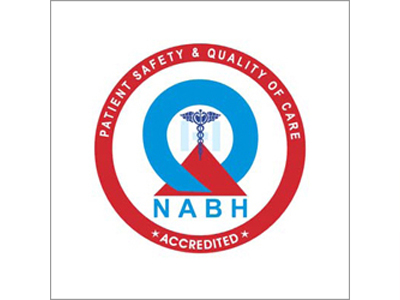Out of the 10 million blind people in India, over 2 million Indians are affected by corneal blindness, and 60% of them are below the age of 12. This could be due to corneal disease, injury or infection where the cornea of the eye becomes opaque. A person with an opaque cornea cannot see, this condition is known as corneal blindness.
Corneal transplantation is the only known cure for corneal blindness, requiring a significant number of eye donations. However, due to a lack of awareness, along with myths and fears associated with eye donation, these numbers remain considerably low. The current cornea collection in India can only meet the needs of one-fourth of the patients. Dr Sunita Chaurasia, Medical Director of The Ramayamma International Eye Bank at the L V Prasad Eye Institute in Hyderabad, emphasized this gap during the commencement of the 38th National Eye Donation Fortnight. She stated, 'We urge people to pledge for eye donation and help bridge this gap.'
The LVPEI Eye Bank Network has successfully harvested (collected) over 1,33,585 donor corneas to date. In addition to utilizing these corneas for corneal transplant surgeries within the LVPEI network, the institute also distributes corneas to surgeons outside the LVPEI network, thereby extending the impact of their efforts. LVPEI is India's largest provider of sight-restoring corneas, significantly reducing wait times for corneal transplantation.
'Eye donation can happen only after the death of a person and consent from their family members. Therefore, it is equally important for the person pledging to donate their eyes to inform their family members and request them to honour their wishes after their passing,' adds Dr Chaurasia.
To commemorate the 38th Eye Donation Fortnight, the L V Prasad Eye Institute is organizing a series of activities from 25th August to 8th September to create public awareness about the importance of eye donation, and to motivate people to pledge their eyes for donation after death.
Cornea harvesting (collection) at LVPEI happens through voluntary donations by the deceased families, partner centres and the Hospital-based Cornea Retrieval Program (HCRP). Eye donation requires cooperation from the partner hospitals, and a dedicated team of the grief counsellors and cornea recovery trained technicians from the eye banks. In the HCRP an eye donation counsellor is placed in the multi-disciplinary hospitals and approaches the deceased family for eye donation. The counsellor screens the deceased person for suitability on medical grounds and approaches the deceased family and motivate for eye donation.
About the LVPEI Eye Bank Network: It comprises of state-of-the-art Eye Bank facilities at its Hyderabad, Bhubaneswar, Visakhapatnam, and Vijayawada campuses.
- The Ramayamma International Eye Bank, Kallam Anji Reddy Campus, Hyderabad: Established in 1989, the eye bank has harvested (collected) over 1,03,090 corneas since its inception and distributed over 59,210 corneas.
- The Drushti daan Eye Bank, Mithu Tulsi Chanrai Campus, Bhubaneswar: Established in 2002, the eye bank has harvested (collected) over 13,070 corneas since its inception and distributed over 10,655 corneas. (Till 15th August 2023)
- The Mohsin Eye Bank, GMR Varalakshmi Campus, Visakhapatnam: Established in 2001, the eye bank has harvested (collected) over 12,545 corneas since its inception and distributed over 7230 corneas.
- The TK Eye Bank, Kode Venkatadri Chowdary Campus, Vijayawada: Established in 2018, the eye bank has harvested (collected) over 4870 corneas since its inception and distributed over 2720 corneas.
About LVPEI: Established in 1987, L V Prasad Eye Institute (LVPEI), a World Health Organization Collaborating Centre for Prevention of Blindness, is a comprehensive eye health facility. The Institute has ten functional arms to its areas of operations: Clinical Services, Education, Research, Vision Rehabilitation, Rural and Community Eye Health, Eye Banking, Advocacy and Policy Planning, Capacity Building, Innovation and Product Development. The LVPEI Eye Care Network has 280+ Centres spread across the states of Telangana, Andhra Pradesh, Odisha and Karnataka in India. The institute's mission is to provide equitable and quality eye care to all sections of society. The LVPEI’s five-tier ‘Eye Health Pyramid’ model covering all sections of society right from the villages to the city, provides high quality and comprehensive - prevention, curative and rehabilitation – eye care to all. It has served over 36.89 million (3 crores 68 lakh people), with more than 50% of them entirely free of cost, irrespective of the complexity of care needed.


